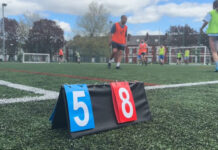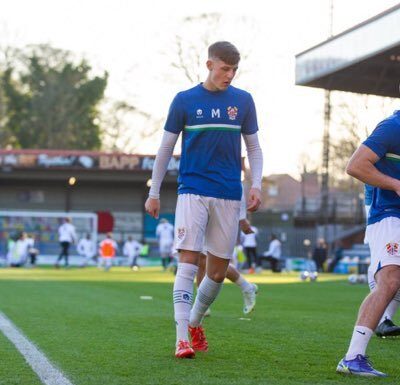In 2016, Liverpool County Council, in association with the FA and Premier League, announced its intention to open state-of-the-art football pitches at Jeffrey Humble Playing Fields in Walton, called the Parklife Project. The development, which totalled a £20m investment, aims to increase both participation and standard of football in the Merseyside region.
The pitches are all third generation (3G) and floodlit, whilst also including male and female changing rooms. The aims of the project are to give the 1.8 million people in the UK who play football on a weekly basis a quality surface in which they can develop their talent.
Liverpool County FA
Anthony Smith, Football Development manager for Liverpool County FA, is excited about what the project can bring to the standard of football in Merseyside. In an interview with MerseySportLive, he said:” The whole idea behind this investment is to get people playing football.”
“It’s well known that the standard of grassroots facilities [in Merseyside] is getting worse, due to a lack of investment.”
In addition to improving the standard of pitches, Liverpool County FA are also eager that this may have the snowball effect of increasing the amount of rising talent in the region. He continued:” If you get more people playing it naturally drives up standards. You have to build the base of the pyramid, and then the more people that play leads to getting better players.”
“Playing on a quality surface is going to help this, rather than playing on a muddy field, or a pitch that’s waterlogged. In turn, this should, in theory, bring technically better players.”
One of the FA’s main objectives with this project is to have at least 50% of ‘mini-soccer’ games played on artificial surface. Mini-soccer is FA regulated football for anyone under the age of 10 years-old. Regarding this, Mr Smith added: “ [The aim of this] is to give these age groups the best possible start to their football career..”
Problems
The construction of these sites, however, has not come without criticism. Whilst football in the region was free to play before, the Parklife project brings along with it the addition of a fee to play. Questioned with this, Mr Smith said: “The local council can no longer afford to subsidise grassroots football, so these charges would have been implemented regardless [of the Parklife Project].
“Through negotiation with a number of parties, we managed to hold off this change until the new investment came. At least, in this case, people are paying to play on a quality surface.”
“We’ve managed to keep the price low so that it roughly works out to be 50-pence per child, per game. This means that compared to other sports it is still a relatively cheap option.”
As there would now be an extra income for the County FA, Mr Smith added that this would be invested back into the pitches in future. He said: “With each pitch that we make, one of the stipulations is that we have to put a sinking fund away. This helps pay for the replacement of the pitch in ten years’ time.”
“One of the ideas behind the Parklife Hub is that some of this investment also get put back into other areas, for example grass pitches and changing rooms. This means that we are not just improving these Parklife pitches, but also grass facilities throughout the city.”
Now that the Parklife Project has been completely implemented, only time will tell if this helps to facilitate the emergence of talent within Merseyside. Its success can not only be judged on this, however, as if it increases participation levels around the region then it will have fulfilled its purpose.
For the full interview with Anthony Smith, click here.
Feature image taken by Alex Metcalfe
















